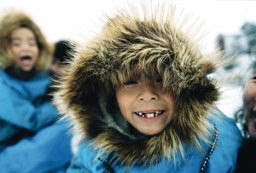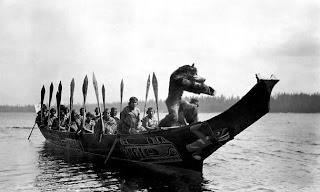The
International Documentary Association (IDA) Documentary Awards is the foremost event dedicated to the art of documentary film. And they are proud to announce the
Special Recognition Awards for the 2009 awards program. Many Special Recognition Awards carry with them cash prizes. These awards recognize outstanding documentaries focusing on the natural environment, social justice, diversity of the human race, as well as achievement in the use of news footage. To apply for the IDA Documentary Awards, please go to Withoutabox.com to submit your entry online. The final deadline is by 11:59pm July 7th.
 The IDA Distinguished Award Main Categories are:
The IDA Distinguished Award Main Categories are:FEATURE: Individual, stand-alone documentary, more than 40 minutes long. Student feature projects not eligible in this category and should submit as an entry in the IDA/David L. Wolper Award below. Award recipient - Limited to two persons, one of whom must be the credited Director who exercised directorial control, and the other of whom must have a Producer or Director credit.
SHORT: Individual, stand-alone documentary, less than or equal to 40minutes long. Student short projects not eligible in this category, and should submit as an entry in the IDA/David L. Wolper Award below. Award recipients - Limited to two persons, one of whom must be the credited Director who exercised directorial control, and the other of whom must have a Producer or Director credit.
LIMITED SERIES: A limited series of episodes with a specific, continuing theme, topic or subject. (Sin City Law, The Supreme Court). Student projects are not eligible in this category. Award recipients -Limited to two persons. While co-production partners may be credited, only the Series Producer(s) will be presented with the award.
CONTINUING SERIES: An ongoing series. (American Masters, Nova, ThisAmerican Life). While co-production partners may be credited, only the Executive Producer(s) of the continuing series will be presented with the award. Student projects are not eligible in this category. Awardrecipients - Limited to two persons.
IDA/DAVID L. WOLPER STUDENT DOCUMENTARY ACHIEVEMENT: A short or feature film/video, produced by registered, degree-seeking student(s). This award recognizes exceptional achievement in non-fiction film and video production at the university level and brings greater public and industry awareness to the work of students in the documentary field. PRIZE: $1,000 honorarium, $1,000 toward the purchase of motion picture film, courtesy of The Eastman Kodak Company, and production of 1,000 DVD's courtesy of Magic Rock Entertainment.
Special Recognition Awards:Not all five main categories of awards are eligible for every special recognition award listed below. See each one below for specific rules relating to which categories can be submitted for special recognition.
IDA/ABCNEWS VIDEO SOURCE AWARD for the best use of news footage as an integral component in a documentary. “News footage” is defined here as factual footage, contemporary or historical, shot for use in context such as newsreels, news specials, magazines or nightly news. “Integral component” is defined here as footage which is central to the structure, meaning and impact of the work. All main categories are eligible for this award. PRIZE: $2,000 Honorarium and $2,000 worth of research time at the ABCNEWS Video Source facility in New York.
IDA/PARE LORENTZ AWARD In keeping with the nature of Pare Lorentz's films —a successful candidate for the Pare Lorentz Award will demonstrate one or more of Lorentz's central concerns— the appropriate use of the natural environment, justice for all and the illumination of pressing social problems— presented as a compelling story by skillful film-making. A Pare Lorentz film will exhibit the highest production values: objective research, artistic writing, and outstanding music composition along with skillful direction, camerawork and editing. All main categories are eligible for this award. PRIZE: $2500 Honorarium.
IDA/HUMANITAS AWARD is given to a documentarian whose film strives to unify the human family by exploring the stories of human beings who are different in culture, race, lifestyle, political loyalties and religious beliefs in order to break down the wall of ignorance and fear that separates us. Only entries into the Distinguished Feature main category may apply for this award. Student projects are not eligible in this category. PRIZE: $2500 Honorarium.
IDA MUSIC DOCUMENTARY AWARD is given to a filmmaker for an outstanding documentary communicating the cultural importance of music and its power to enrich the human spirit. The entry must have all rights cleared. The award goes to ONE recipient: the credited individual who exercised creative control. Only stand-alone entries into the Distinguished Feature or Short main category may apply for this award. Student projects are not eligible in this category.
Submission fees:Features & Shorts - $150 (members), $180 (non members).
Wolper Student Achievement Award - $50 (members), $60 (non members).
Limited & Continuing Series - $350 (members), $450 (non members).
Applicants will be notified in mid-October if selected to participate. Entry fee is NON-REFUNDABLE.
 In the 1940's, curator and founding director Hilla Rebay planned to establish a film center at the Museum of Non-Objective Painting, which later became the Solomon R. Guggenheim Museum, to collect and promote nonobjective films. She awarded grants to artists and presented programs of short experimental films. With the help of Oskar Fischinger, an elaborate film center was planned to include studios and planetarium-style projection capability. Although unrealized, Rebay's support enabled many filmmakers to continue their work in abstract film. This program presents short films by filmmakers whose work was screened and/or supported by Rebay, including Jordan Belson, Mary Ellen Bute, Charles Dockum, Oskar Fischinger, Norman McLaren, Hans Richter, Harry Smith, among others. Having experimented with nonobjectivity, many of these artists were familiar with the work of Vasily Kandinsky, one of its most famous practitioners.
In the 1940's, curator and founding director Hilla Rebay planned to establish a film center at the Museum of Non-Objective Painting, which later became the Solomon R. Guggenheim Museum, to collect and promote nonobjective films. She awarded grants to artists and presented programs of short experimental films. With the help of Oskar Fischinger, an elaborate film center was planned to include studios and planetarium-style projection capability. Although unrealized, Rebay's support enabled many filmmakers to continue their work in abstract film. This program presents short films by filmmakers whose work was screened and/or supported by Rebay, including Jordan Belson, Mary Ellen Bute, Charles Dockum, Oskar Fischinger, Norman McLaren, Hans Richter, Harry Smith, among others. Having experimented with nonobjectivity, many of these artists were familiar with the work of Vasily Kandinsky, one of its most famous practitioners.



